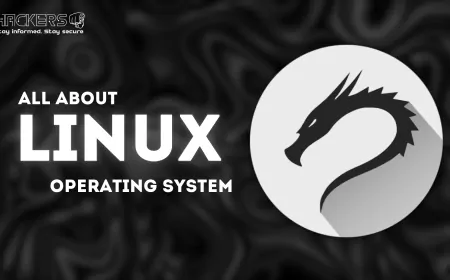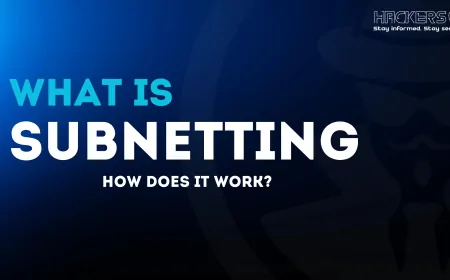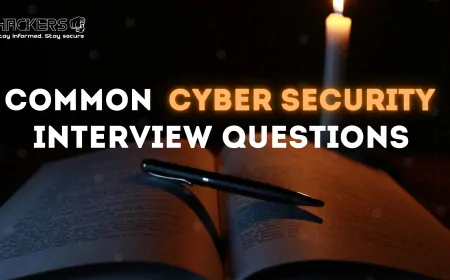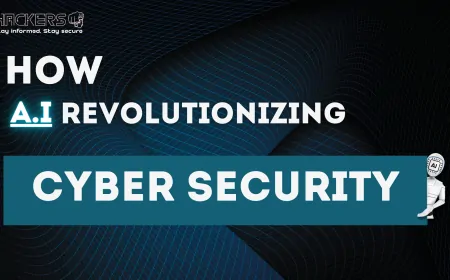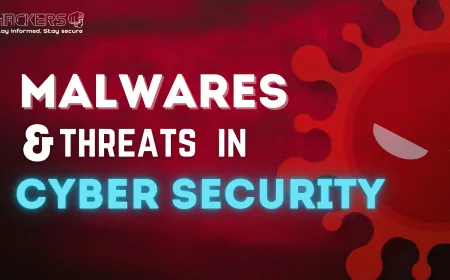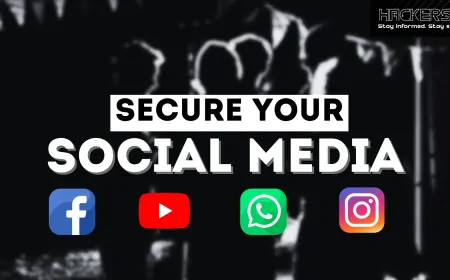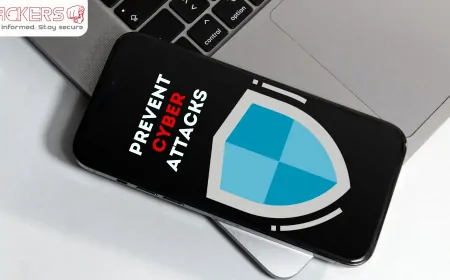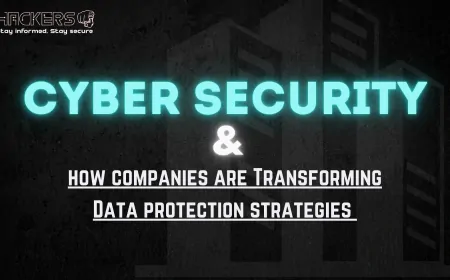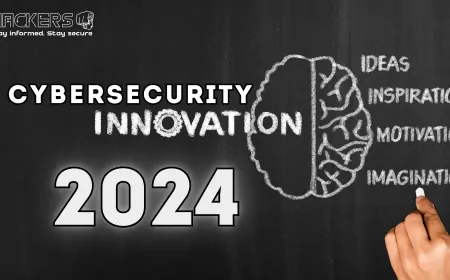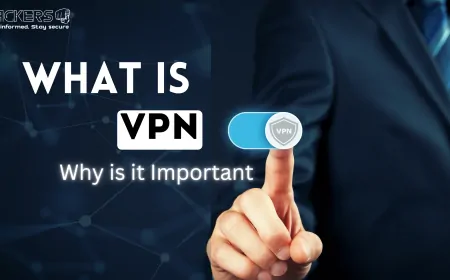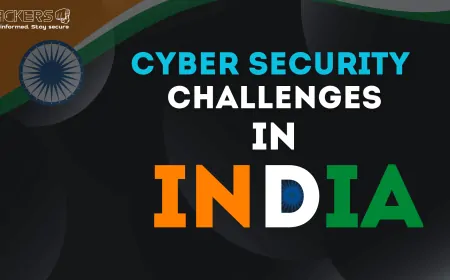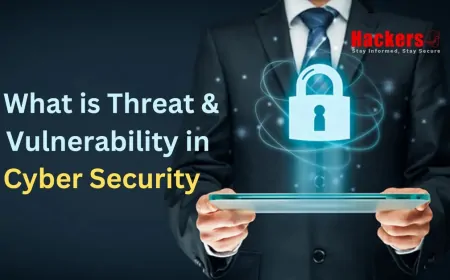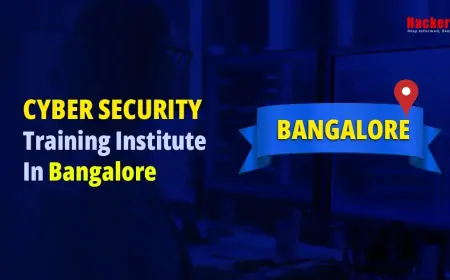Ethical Hacking Career Roadmap After B.Com| Eligibility, Course, Fees, and Syllabus for 2024
Discover the career roadmap for ethical hacking after a B.Com. Learn about eligibility requirements, essential courses, fees, and syllabus details to kickstart your career in cybersecurity and become a certified ethical hacker

What is Ethical Hacking and How to Choose This as a Career After B.Com?
What is Ethical Hacking?
Ethical hacking, also known as penetration testing or white-hat hacking, involves the practice of intentionally probing computer systems, networks, and applications to identify vulnerabilities and weaknesses before malicious hackers can exploit them. The purpose of Ethical Hacking is to enhance security by discovering and addressing potential security issues.
Key Aspects of Ethical Hacking:
Purpose and Intent:
- Security Enhancement: Ethical hackers work to improve the security of systems by finding vulnerabilities and recommending fixes.
- Legal Authorization: Ethical hacking is performed with explicit permission from the organization whose systems are being tested. This distinguishes it from illegal hacking activities.
Techniques and Tools:
- Vulnerability Assessment: Identifying and evaluating security weaknesses.
- Penetration Testing: Simulating cyber-attacks to test system defenses.
- Social Engineering: Testing human factors in security, such as susceptibility to phishing.
Certifications and Skills:
- Certifications: Common certifications include Certified Ethical Hacker (CEH), Offensive Security Certified Professional (OSCP), and CompTIA Security+.
- Skills: Knowledge of programming, networking, and operating systems, along with problem-solving abilities.
Choosing a Career in Ethical Hacking After B.Com
Pursuing a career in ethical hacking after completing a Bachelor of Commerce (B.Com) can be a strategic move, especially as cybersecurity becomes increasingly important. Here’s how you can transition into this field and build a successful career:
1. Understand the Role:
- Ethical Hackers' Responsibilities: They perform security assessments, identify vulnerabilities, and provide recommendations for improving security.
- Work Environments: Ethical hackers work in various settings, including corporate IT departments, cybersecurity firms, and as independent consultants.
2. Assess Your Eligibility:
- Educational Background: A B.Com provides a solid foundation in business and management, but additional technical knowledge is essential for ethical hacking.
- Technical Skills: Develop an understanding of computer systems, networks, and cybersecurity fundamentals. Basic IT skills are necessary for a smooth transition.
3. Acquire Relevant Skills and Knowledge:
- Enroll in Courses: Pursue specialized courses and certifications in ethical hacking. Recommended certifications include:
-
- Certified Ethical Hacker (CEH): Provides essential knowledge of ethical hacking techniques.
- Offensive Security Certified Professional (OSCP): Focuses on hands-on penetration testing skills.
- CompTIA Security+: Offers a broad overview of security principles.
- Practical Experience: Gain hands-on experience through labs, internships, or practical training programs.
4. Explore Certification Options:
- CEH: Duration of 5 to 10 days, with fees ranging from ₹40,000 to ₹70,000.
- OSCP: Duration of 3 to 6 months, with fees ranging from ₹90,000 to ₹1,50,000.
- CompTIA Security+: Duration of 1 to 2 months, with fees ranging from ₹30,000 to ₹50,000.
5. Build Your Professional Network:
- Join Professional Organizations: Engage with cybersecurity communities and organizations such as (ISC)² or EC-Council.
- Attend Conferences: Participate in cybersecurity conferences and workshops to stay updated and network with industry professionals.
6. Gain Practical Experience:
- Internships: Seek internships in cybersecurity firms or IT departments to gain real-world experience.
- Home Labs: Set up your own testing environment to practice ethical hacking techniques and tools.
7. Stay Informed and Updated:
- Industry Trends: Keep up with the latest developments in cybersecurity and ethical hacking.
- Continuous Learning: Engage in ongoing education to stay current with evolving threats and technologies.
Why is Ethical Hacking Important?
Ethical hacking plays a crucial role in the modern cybersecurity landscape. Here’s why ethical hacking is important for organizations and individuals:
1. Identifying Vulnerabilities
- Proactive Security: Ethical hackers perform rigorous testing to uncover vulnerabilities in systems, networks, and applications before malicious hackers can exploit them.
- Preventive Measures: By identifying and addressing security weaknesses, organizations can implement preventive measures to protect their assets from potential attacks.
2. Enhancing Security Posture
- Improved Defenses: Regular ethical hacking helps organizations strengthen their security measures by exposing and fixing potential vulnerabilities.
- Risk Management: It assists in managing and mitigating risks associated with cyber threats, reducing the likelihood of data breaches and financial losses.
3. Compliance and Regulations
- Regulatory Requirements: Many industries and regulations require organizations to perform regular security assessments to comply with standards such as GDPR, HIPAA, and PCI-DSS.
- Avoiding Penalties: Ethical hacking ensures that organizations meet compliance requirements and avoid potential legal and financial penalties for security breaches.
4. Real-World Threat Simulation
- Simulated Attacks: Ethical hackers simulate real-world attack scenarios to test the effectiveness of security measures and response strategies.
- Response Readiness: This helps organizations prepare for actual cyber-attacks by improving their incident response and recovery processes.
5. Protecting Sensitive Data
- Data Security: Ethical hacking helps protect sensitive data, including personal, financial, and confidential information, from unauthorized access and theft.
- Safeguarding Privacy: By identifying and addressing vulnerabilities, ethical hackers contribute to maintaining the privacy and security of individuals and organizations.
6. Enhancing Trust and Reputation
- Building Trust: Demonstrating a commitment to cybersecurity through ethical hacking helps build trust with clients, customers, and stakeholders.
- Positive Reputation: Organizations known for robust security practices are more likely to earn a positive reputation and attract business.
7. Cost Efficiency
- Cost Savings: Identifying and fixing vulnerabilities before they are exploited by attackers can save organizations from significant financial losses associated with data breaches and system downtime.
- Resource Optimization: Ethical hacking helps optimize resources by ensuring that security measures are effective and efficiently addressing potential threats.
8. Keeping Up with Evolving Threats
- Adapting to Threats: The cybersecurity landscape is constantly evolving, with new threats and attack methods emerging regularly.
- Continuous Improvement: Ethical hacking ensures that security measures are continuously updated and adapted to address the latest threats and vulnerabilities.
9. Training and Skill Development
- Skill Enhancement: Ethical hacking provides valuable hands-on experience and training for cybersecurity professionals, helping them stay current with industry practices and technologies.
- Knowledge Sharing: Ethical hackers contribute to the broader cybersecurity community by sharing insights and knowledge about vulnerabilities and attack methods.
Eligibility Criteria
Educational Background:
- Bachelor’s Degree: A B.Com degree provides a foundational understanding of business and management, but additional technical knowledge and skills are necessary for a career in ethical hacking.
- Additional Courses: Enrolling in specialized courses or obtaining certifications in cybersecurity and ethical hacking can enhance your qualifications.
Skills and Knowledge:
- Basic IT Knowledge: Understanding of computer systems and networks is essential.
- Interest in Technology: A genuine interest in technology and cybersecurity is crucial.
- Analytical Skills: Strong problem-solving and analytical skills are necessary for identifying and addressing security issues.
Certifications to Enhance Your Career in Ethical Hacking
| Certification | Description | Duration | Fees (Approx.) | Key Topics Covered |
|---|---|---|---|---|
| Certified Ethical Hacker (CEH) | Provides fundamental knowledge of ethical hacking techniques and tools. | 5 to 10 days | ₹40,000 to ₹70,000 | Ethical hacking basics, footprinting, scanning, hacking methods. |
| Offensive Security Certified Professional (OSCP) | Advanced certification focusing on hands-on penetration testing and real-world scenarios. | 3 to 6 months (self-paced) | ₹90,000 to ₹1,50,000 | Penetration testing, exploitation, post-exploitation, reporting. |
| CompTIA Security+ | Covers a broad range of security topics, ideal for building a solid foundation in cybersecurity. | 1 to 2 months | ₹30,000 to ₹50,000 | Network security, threats, vulnerabilities, cryptography, risk management. |
| Certified Information Systems Security Professional (CISSP) | Advanced certification focusing on information security and risk management. | 2 to 3 months | ₹1,00,000 to ₹1,50,000 | Security and risk management, asset security, security architecture, network security. |
| Certified Penetration Testing Engineer (CPTE) | Emphasizes practical skills in penetration testing and vulnerability assessment. | 2 to 3 months | ₹60,000 to ₹90,000 | Penetration testing methodologies, vulnerability assessment, reporting. |
| Certified Information Security Manager (CISM) | Focuses on managing and governing enterprise information security. | 3 to 6 months | ₹70,000 to ₹1,00,000 | Information security governance, risk management, program development, incident management. |
| Certified Cybersecurity Analyst (CySA+) | Concentrates on threat detection and response, as well as security operations. | 2 to 3 months | ₹40,000 to ₹60,000 | Threat and vulnerability management, security operations, incident response. |
Why Choose WebAsha Technologies for Your Ethical Hacking Training?
When considering ethical hacking training, selecting the right provider is crucial for gaining comprehensive knowledge and practical skills. WebAsha Technologies stands out as an exceptional choice for several reasons:
1. Expert Instructors
- Certified Professionals: WebAsha Technologies employs highly qualified instructors who are certified ethical hackers and experienced professionals in the field of cybersecurity.
- Industry Experience: Instructors bring real-world experience and practical insights into the training, ensuring that students receive relevant and up-to-date knowledge.
2. Comprehensive Curriculum
- Wide Range of Topics: The training program covers a broad spectrum of ethical hacking concepts, including network security, web application security, penetration testing, and vulnerability assessment.
- Hands-On Labs: Students engage in practical exercises and simulated attacks to gain hands-on experience and apply theoretical knowledge in real-world scenarios.
3. Quality Course Material
- Updated Content: The course material is regularly updated to reflect the latest developments and trends in cybersecurity and ethical hacking.
- Practical Resources: Students receive access to valuable resources, including tools, case studies, and real-world scenarios for a deeper understanding of ethical hacking techniques.
4. Flexible Learning Options
- Online and In-Person: WebAsha Technologies offers flexible learning options, including online courses and in-person training sessions, to accommodate different schedules and learning preferences.
- Self-Paced Learning: For those with busy schedules, self-paced learning options allow students to progress at their own pace and balance their studies with other commitments.
5. Industry-Recognized Certifications
- Certification Preparation: The training prepares students for leading ethical hacking certifications such as CEH, OSCP, and CompTIA Security+, enhancing their credentials and career prospects.
- Exam Support: WebAsha Technologies provides guidance and support for certification exams, including practice tests and study materials.
6. Practical Experience and Labs
- Hands-On Training: Students gain practical experience through interactive labs and exercises, simulating real-world hacking scenarios and security assessments.
- Lab Environment: A secure and controlled lab environment allows students to safely practice ethical hacking techniques and tools.
7. Career Support and Guidance
- Job Placement Assistance: WebAsha Technologies offers job placement support and career guidance to help students secure positions in the cybersecurity field.
- Resume Building and Interview Prep: Assistance with resume building, interview preparation, and networking opportunities enhances students' job readiness.
8. Positive Reviews and Success Stories
- Student Testimonials: Positive feedback from past students highlights the effectiveness of the training program and the success achieved by graduates in their ethical hacking careers.
- Track Record: WebAsha Technologies has a proven track record of delivering high-quality training and producing skilled cybersecurity professionals.
9. Competitive Pricing
- Affordable Options: WebAsha Technologies offers competitive pricing for its ethical hacking training programs, providing value for money without compromising on quality.
- Flexible Payment Plans: Flexible payment options are available to accommodate different budgets and financial situations.
10. Commitment to Continuous Improvement
- Ongoing Updates: The training program is continuously updated to include the latest advancements in cybersecurity and ethical hacking.
- Feedback Integration: WebAsha Technologies values student feedback and integrates it to enhance the training experience and outcomes.
Ethical Hacking Course Structure and Syllabus for 2024
| Module | Topics Covered | Duration |
|---|---|---|
| 1. Introduction to Ethical Hacking | - Overview of Ethical Hacking - Legal and Ethical Considerations - Types of Hackers |
1 Week |
| 2. Networking Fundamentals | - Networking Basics - TCP/IP Protocols - Network Devices and Services - Network Topologies |
2 Weeks |
| 3. Footprinting and Reconnaissance | - Information Gathering Techniques - Network Scanning - Social Engineering |
2 Weeks |
| 4. Scanning Networks | - Network Scanning Tools (Nmap, etc.) - Vulnerability Scanning - Port Scanning Techniques |
2 Weeks |
| 5. Enumeration | - Enumeration Techniques - DNS Enumeration - SNMP Enumeration - NetBIOS Enumeration |
1 Week |
| 6. System Hacking | - System Exploitation - Privilege Escalation - Password Cracking - Rootkits and Trojans |
3 Weeks |
| 7. Malware Analysis | - Types of Malware - Malware Analysis Techniques - Reverse Engineering Basics |
2 Weeks |
| 8. Sniffing and Evasion | - Network Sniffing Techniques - Packet Analysis - Evasion Techniques and Tools |
2 Weeks |
| 9. Web Application Security | - Web Application Vulnerabilities (SQL Injection, XSS, etc.) - Web Application Scanning Tools |
3 Weeks |
| 10. Wireless Network Security | - Wireless Technologies - Wi-Fi Security Protocols - Attacks on Wireless Networks |
2 Weeks |
| 11. Cryptography | - Basics of Cryptography - Encryption and Decryption Techniques - Cryptographic Protocols |
1 Week |
| 12. Penetration Testing | - Penetration Testing Methodologies - Reporting and Documentation - Hands-On Penetration Testing |
3 Weeks |
| 13. Incident Response and Management | - Incident Response Procedures - Forensics Basics - Handling Security Incidents |
2 Weeks |
| 14. Ethical Hacking Tools and Techniques | - Tool Usage (Metasploit, Burp Suite, etc.) - Advanced Techniques - Case Studies |
2 Weeks |
| 15. Final Project and Review | - Capstone Project - Course Review and Exam Preparation |
2 Weeks |
Conclusion
Embarking on a career in ethical hacking after completing a B.Com can be a highly rewarding path, offering numerous opportunities to safeguard digital environments and combat cyber threats. By following the outlined roadmap, you can effectively transition into this field by understanding the eligibility requirements, enrolling in the appropriate courses, and managing the associated fees.
The career path in ethical hacking involves acquiring specialized knowledge and skills through targeted courses and certifications. Investing in the right educational programs and staying updated with the latest cybersecurity trends will equip you with the expertise needed to excel in this field.
With the increasing demand for skilled cybersecurity professionals, a well-planned approach to your education and career development can lead to successful job placements and fulfilling roles in ethical hacking. By leveraging your B.Com background and focusing on relevant training and certifications, you can position yourself for a thriving career in ethical hacking and contribute significantly to protecting valuable digital assets.
FAQs
1. What is ethical hacking?
Answer: Ethical hacking involves testing and evaluating the security of computer systems, networks, and applications to identify and fix vulnerabilities before malicious hackers can exploit them. Ethical hackers, also known as white-hat hackers, use their skills to help organizations strengthen their security measures.
2. What are the eligibility criteria for pursuing a career in ethical hacking after B.Com?
Answer: After completing a B.Com, you typically need to gain specialized knowledge in cybersecurity and ethical hacking. While a specific degree is not always required, relevant certifications and training in ethical hacking can significantly enhance your qualifications. Skills in IT, understanding of networking, and a keen interest in security are also beneficial.
3. What courses should I take to start a career in ethical hacking?
Answer: Key courses include:
- Certified Ethical Hacker (CEH): Covers ethical hacking methodologies and techniques.
- Offensive Security Certified Professional (OSCP): Focuses on penetration testing skills.
- CompTIA Security+: Provides foundational knowledge in cybersecurity.
- Certified Information Systems Security Professional (CISSP): Advanced certification for broader security knowledge.
4. What is the typical fee for ethical hacking courses?
Answer: Course fees can vary widely:
- Basic Ethical Hacking: ₹20,000 - ₹30,000
- Advanced Ethical Hacking: ₹40,000 - ₹60,000
- CEH Preparation: ₹50,000 - ₹80,000
- Penetration Testing & Ethical Hacking: ₹60,000 - ₹90,000
- Complete Ethical Hacking and Cybersecurity: ₹80,000 - ₹1,20,000
5. What is the duration of ethical hacking courses?
Answer: The duration varies based on the course:
- Basic Courses: 4-6 weeks
- Advanced Courses: 8-12 weeks
- Certification Preparations: 12-16 weeks
- Comprehensive Programs: 6-12 months
6. What certifications are valuable in ethical hacking?
Answer: Important certifications include:
- Certified Ethical Hacker (CEH)
- Offensive Security Certified Professional (OSCP)
- CompTIA Security+
- Certified Information Systems Security Professional (CISSP)
- Certified Penetration Testing Engineer (CPTE)
7. What are the job prospects and salary expectations in ethical hacking?
Answer: Ethical hacking offers robust job prospects with positions such as Ethical Hacker, Security Analyst, and Penetration Tester. Salaries vary based on experience and role:
- Entry-Level: ₹4,00,000 - ₹6,00,000 per annum
- Mid-Level: ₹7,00,000 - ₹10,00,000 per annum
- Senior-Level: ₹12,00,000 - ₹18,00,000 per annum
8. How can I find job opportunities in ethical hacking?
Answer: To find job opportunities, you can:
- Network: Attend industry events and join professional organizations.
- Job Boards: Check specialized job boards and company career pages.
- Internships: Gain experience through internships and entry-level positions.
- Online Presence: Build a strong LinkedIn profile and showcase your skills on platforms like GitHub or personal blogs.
9. What skills are essential for a successful career in ethical hacking?
Answer: Key skills include:
- Technical Knowledge: Understanding of networking, operating systems, and security protocols.
- Problem-Solving: Ability to think critically and analyze security issues.
- Tools Proficiency: Familiarity with tools like Nmap, Metasploit, and Burp Suite.
- Communication: Skills to effectively convey findings and recommendations.
10. Is continuous learning important in ethical hacking?
Answer: Yes, continuous learning is crucial in ethical hacking due to the rapidly evolving nature of cybersecurity threats and technologies. Staying updated with the latest trends, tools, and techniques is essential to remain effective in the field.
What's Your Reaction?








